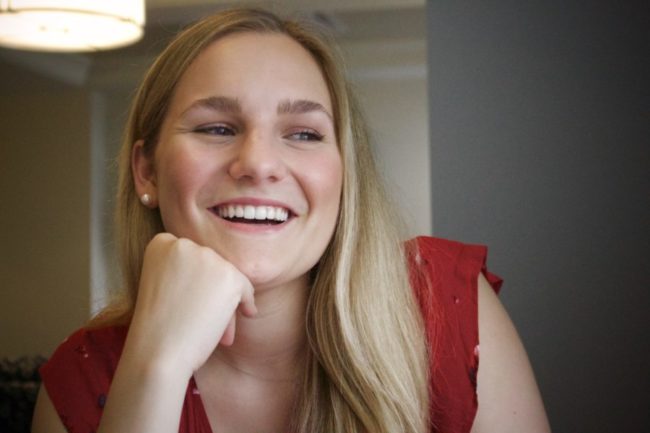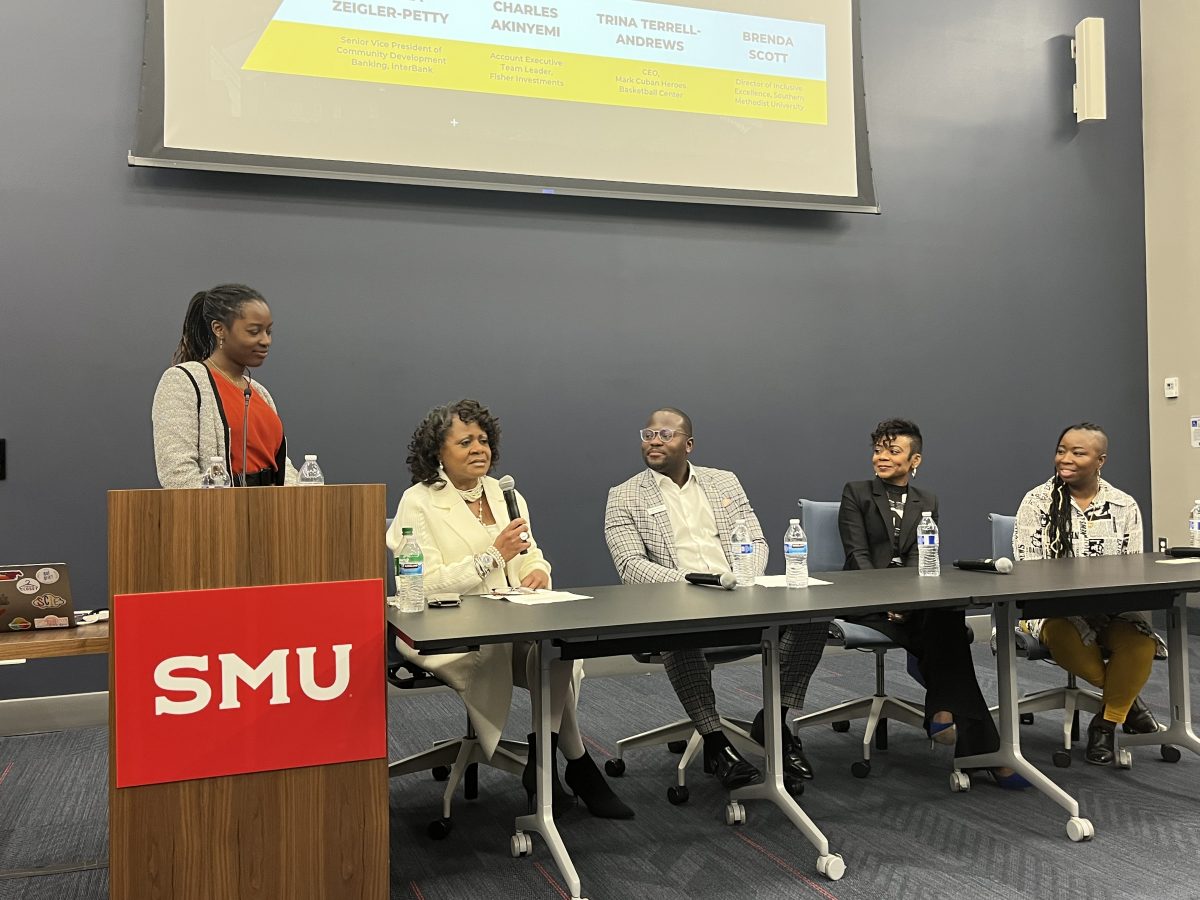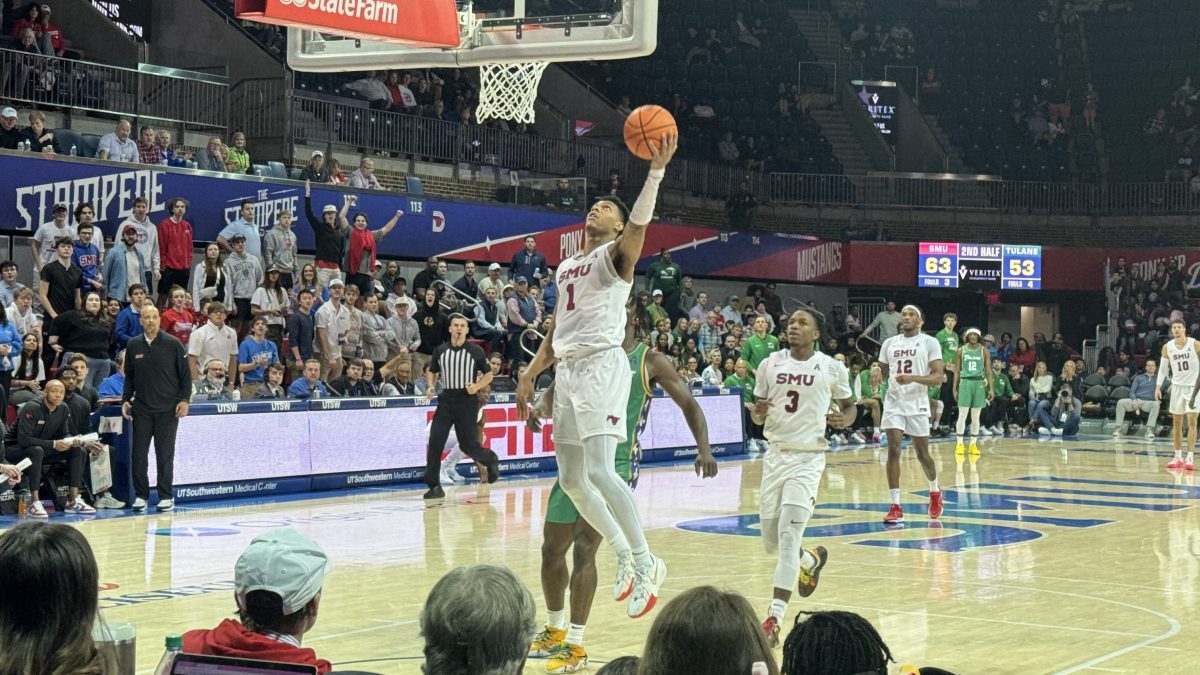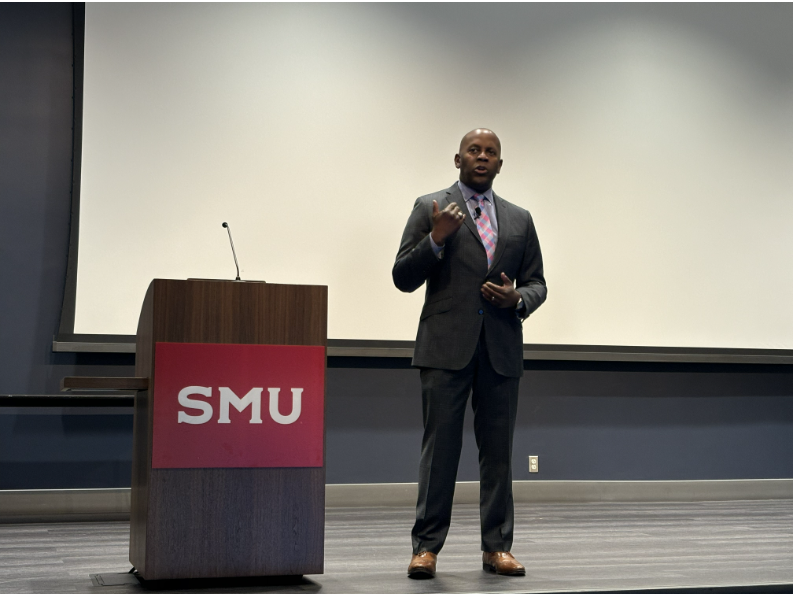Sophomore student Katelyn Dunn sits in class in the Junkins building on campus at Southern Methodist University. Today, her blonde hair is pulled back into a ponytail, a hat with her sorority letters sits on top of her head. She has smiley faces on the back of her shoes. Her professor, Dr. Coyle, tells her and the class to prepare for an upcoming quiz on multithreading. Dunn explains multithreading is a technique by which a single set of computer code can be used by several processors at different stages of execution. It’s a complicated topic, but common knowledge for a computer science major like her.
Even though Dunn has been a declared computer science major in the Lyle School of Engineering for the past two years, it does nothing to stop the surprised expressions she receives from other students. “You must be so smart,” they say. Or, “It’s so impressive what you do.” Dunn is used to the comments.
“In the engineering school, I am pretty widely accepted,” Dunn said. “But when I leave and interact with people from Greek life…the fact that I’m a computer science major really throws some people off.”
At many schools, Dunn is a rarity. But at SMU, she is fortunate to be one of a large population of women engineers. In fact, according to the Assistant Dean of Recruitment Mickey Saloma, more than 30 percent of the students in Lyle are female, twice the national average.
“[When recruiting,] I look for students that will bring value to SMU and the Lyle School of Engineering,” Saloma said. “The SMU community and the engineering world thrive when you focus on diversity.”
Thanks to Saloma, women in the engineering field at SMU are fairly common. Nationally, it is a different story.
In the field of engineering, both in academia and in the engineering profession, women are under-represented. According to a survey by the Institution of Engineering and Technology, in 2015, only 9 percent of workers in the engineering and technology industry are female. In an era of female empowerment and at a time when women are becoming progressively more involved in fields like business, medicine and law, the question remains: why are so few women scientists and engineers?
Jennifer Dworak, an engineering professor at SMU with a Ph.D. in electrical engineering, weighed in on the subject.
“I think part of it is culture,” Dworak said. “It depends on what people think women should do…but one thing I think is accurate is there is a misconception that engineers…aren’t necessary altruistic and don’t really help people as much. I’d say there are a lot more women in the bio fields for that reason, they think they have a better change of helping someone in that field than in engineering…[engineering] is very practical.”
Dworak, a Texas A&M graduate with a Ph.D. in electrical engineering, faced circumstances similar to Dunn as an undergraduate student. The professor of her graphic design class told her the material would be harder for her because she was a girl.
“I remember thinking okay, yeah that’s sort of stupid,” Dworak said and laughed. “Watch me do as well as anyone else.”
According to a study made by the Harvard Business Review, gender stereotyping incidents like the one Dworak experienced are fairly common. The study states that when working in collaborative group environments, women report feeling excluded by male colleagues. Women in the study also described professors treating female students differently due to gender.
Dworak found a way to look past this.
“Being in a room full of guys wasn’t an intimidating thing because I thought, well, if they can do it, so can I,” Dworak said.
Not all women can have Dowark’s confidence. According to a 2010 study made by the American Association of University Women, fewer woman than men seek to earn degrees in science technology and engineering. What’s more, by graduation, men outnumber women in nearly every science and engineering field. Women’s representation declines further in the transition to the workplace, largely due to an intense wage gap.
According to an article by New Scientist, women on average earned as much as much as 20 percent less than their male counterparts. And, according to an article by Time.com, women often can only earn as much as men in their field if they pursue a second degree.
Dworak says this pay gap persists because not enough people are talking about it.
“I don’t think enough people know about [it,]” Dworak said. “But, I also think that things like women leaving the work force to start families, or for other reasons, can skew results.”
Sila Cetinkaya, an SMU engineering professor with a Ph.D. in management science and systems, believes awareness is growing, and encourages her students, male or female, to fight for higher starting salaries.
“There are certain times where women and people can change things for the better, and your starting salary is one of them,” Cetinkaya said.
Both Cetinkaya and Dworak believe that more women involvement in engineering will spark positive change in the future. Dworak emphasizes the importance of giving young women the opportunity to explore science and technology and to look past negative stereotypes.
“If a female student has another interest, go for it,” Dworak said. “[But} if you’re avoiding it because you’re worried about what people think…then that is something that needs to be fixed. And I think the way to do that is to give female students the opportunities to see that they can do it…and they can help other people by doing it.”
And despite some comments from her peers, Dunn looks forward to finishing her degree. She continues her studies with her head high because, at the end of the day, she loves doing what she does.
“Overall, I really love being a computer science major and being in the engineering field,” Dunn said. “The male and female dynamic doesn’t bother me because the work is really rewarding… and when your teammates are there to support you it doesn’t really matter.”
Check out Katelyn Dunn’s on-camera interview.














